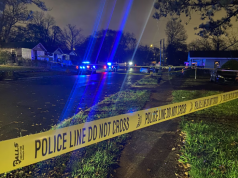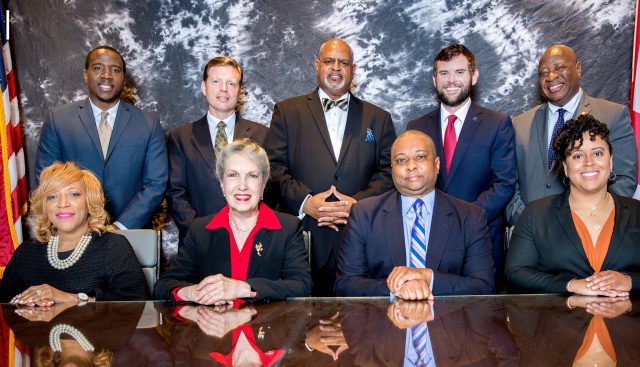
By Erica Wright
The Birmingham Times
Social media, emails, conference calls. These have become popular means of communication for Birmingham City Council members, who are limited in the ways they can meet with constituents during the COVID-19 pandemic.
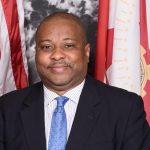
With council chambers empty of residents for nearly two months and Birminghamians sheltered in place, city councilors have looked for ways to maintain contact with citizens. Council President William Parker, who represents District 4, said the body has been teaming up to make sure residents stay informed and have what they need.
“[We’re] making sure we educate the public on the importance of if you feel sick, stay at home; if you need to be tested, we have the sites to make it easy and accessible; and … washing hands on a regular basis,” he said. “We’ve been working on the small-business aspect, making sure businesses have funding to get loans.”
The city recently launched the Birmingham Strong fund, which is designed to provide zero-interest, 180-day loans to small businesses (fewer than 50 employees) of no more than $25,000 to prevent staff reductions and offset losses related to COVID-19.
Parker added that the city also has worked to connect local small businesses that need assistance with state and federal partners.
“It’s an all-hands-on-deck approach,” said the council president. “We want to be sure we provide the resources necessary for the citizens of Birmingham.”
In District 1, Councilor Clinton Woods has kept his constituents informed via emails, social media, and phone calls with
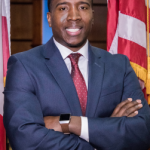
neighborhood leaders.
“I believe taking action now will save lives,” he said. “I will continue to work to find more ways to support residents, small businesses, and nonprofits through these extremely challenging times.”
District 2 Councilor Hunter Williams said he’s “big on neighborhood meetings” but has now changed “… communication from in-person to everything being done by email and phone. We’re on Facebook pages, too, so we’ve been utilizing the internet and social media to stay in contact.”
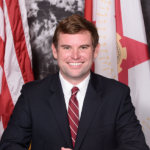
Williams is chair of the Public Safety Committee, and said those meetings have changed, as well: “We’ve been doing all of them virtually, so we don’t hold up applications for people that are in the process of opening businesses.”
Councilor Valerie Abbott, of District 3, said “accurate information” is key to her messaging.
“We’ve always addressed people’s issues when they’ve contacted our office, so that is just the norm,” she said. “Right now, what we’re trying to do as a council is provide the most [accurate] information and links to information, so people are not out there in the dark and believing some of these crazy rumors and tales. We haven’t changed what we do on a normal basis, but from a City Council standpoint and a District 3 standpoint, we’re trying to do as much as we can to keep people safe and healthy.”
Abbott has a website for constituents and “our neighborhood
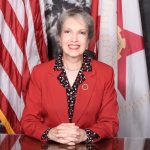
leaders—they are the first people we go to when we have information. And I do have a website where we post information.”
For Councilor Darrell O’Quinn, District 5, members of his staff call, email, and reach out to every neighborhood officer twice a week, asking them specifically if there are any needs or residents who may need help. Part of his outreach includes making sure city school students have internet access.

“City schools are moving to a more online learning component, and we want to ensure that internet access is available to our students and families so they can participate in that type of activity,” he said.
In District 6, Councilor Crystal Smitherman prints out information with Centers for Disease Control and Prevention (CDC) guidelines. She also has her staff check on neighborhood officers and others, while continuing to have conference calls with neighborhood leaders, clergy, and state and federal representatives.
“I’ve been making sure [constituents] know about the different meal [services] that are available,” she said. “I put a lot of stuff out on social media letting them know [where to find] free meals
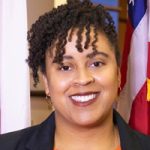
for kids.”
Council President Pro-Tempore Wardine Alexander, of District 7, said her staff is teleworking from home.
“Residents have readily adjusted by calling, texting, and emailing our office with their district concerns and issues, and we are monitoring and immediately responding to messages,” she said.
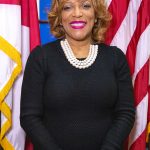
To communicate with residents, Alexander and her staff also been using the Everbridge mass communication notification system to send robocalls and monthly distributions of the District 7 newsletter. Updates are also available on the district’s social media pages, including Facebook and Instagram.
Councilor Steven Hoyt, District 8, said he shares most updates on his Facebook page: “That’s a medium through which we can get information out. [It] doesn’t cost us anything, and we can just focus on informing the public.”
“I’ve been telling people to adhere to whatever mandates we have going on in the city. I think that is important,” he said. “I think people need to take this very seriously. It’s a tough time for everybody.”
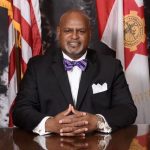
In District 9, with all public and in-person meetings canceled, Councilor John Hilliard has moved to more conference calls among local leaders, pastors, neighborhood officers, and state and federal representatives.
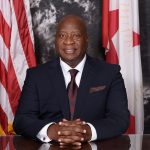
“[We also send] in-depth emails about updates regarding COVID-19, as well as use our social media platforms to get the word out,” he said. “[We use] every possible method to reach constituents and make sure they are up to speed as changes develop, while still practicing social distancing.”
For more information and updates on COVID-19, residents can text “BHAMCOVID” to 888-777 or visit www.birminghamal.gov/coronavirus.

